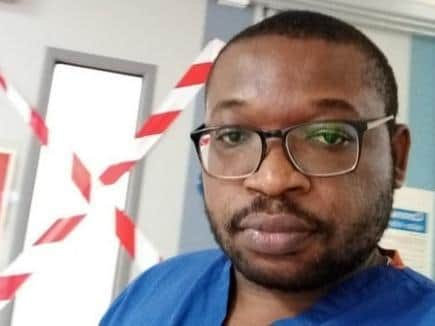Royal Preston Hospital doctor: Should loved ones get PPE to say goodbye to dying relatives when medics are struggling to get life-saving kit?
and live on Freeview channel 276
Before the pandemic, the NHS worked over the years to try to ensure dignity of care – both in life and in death.
One of its very efficient ways of doing that is to draw up patient-led plan to ensure dying patients have access to emotional/psychological support and to be able to be with their loved ones in their hour of death.
Advertisement
Hide AdAdvertisement
Hide AdRegular visitations by relatives and friends to their loved ones were actively encouraged by hospitals.


Belongings and memorable items were often brought into the hospitals to be kept by the bedside as attempts were made to make the patient feel at home as much as possible.
The reading of poems and novels; playing patients favourite songs etc were actively used in hospital wards.
Relatives were allowed multiple visits per day in most hospitals and provisions made for those living very far from the hospital to have access to accommodation within the hospital premises for a significant amount of time.
Advertisement
Hide AdAdvertisement
Hide AdAll these processes were put in place as it was believed to help in overall patients’ recovery and complements efforts to deliver highest quality of care possible.
Unfortunately, not all patients return back to their place of abode from hospital. Some are severely sick and are unable to turn around even after being sent to intensive care unit.
These patients in their period of death routinely have access to their loved ones usually spending hours with them until they pass away from this world.
The opportunity to be with their loved ones helps the grieving process and also allows the dying patient the opportunity to stay with their loved ones till their last breaths.
Advertisement
Hide AdAdvertisement
Hide AdAfter death, the deceased patient is taken to the morgue where the relatives, still have opportunity to see their loved ones, before whichever mode of final rites is completed – cremation or preparation for burial.
Ability to either take their loved ones for burial and to decide where and how to conduct the memorial service was made by the next of kin and their loved ones.
Sadly, most of the above options are no more. This pandemic has made all this extremely difficult, if not impossible.
As a result of infection control measures instituted by hospitals and trusts and government, patients – even those not infected with the virus – are often times without next of kin in their most vulnerable moment, and dying alone with no loved one by their side.
Advertisement
Hide AdAdvertisement
Hide AdThis, I know, is very distressing to their loved ones as they are kept away from saying goodbyes the way they would have loved to.
Hospitals have attempted to implement new policies, with frequent updates to family via phone numerous times a day in place of the “in-house” visits by relatives.
Newer modalities have been explored by trusts, including mine, with video conferencing platforms like Facetime, Skype, etc, but this option also introduces some confidentiality and data protection issues while also being very difficult for relatives, as this represents a change from what they have come to expect from the NHS prior to the Covid- 19 era.
There is always the possibility of providing Personal protective equipment (PPE) to the next of kin to enable them be with their dying loved ones.
Advertisement
Hide AdAdvertisement
Hide AdHowever, this also presents its own challenges, especially with the much publicised worldwide scarcity of PPEs leading to the ethical question: is it justifiable to give PPEs to next of kin when healthcare workers on the frontlines are struggling to get one?
There is also the real possibility that next of kins have already been infected and risk of infecting everyone along their path to the hospital, including healthcare professionals.
The recent government effort to clarify guidelines which will allow loved ones to attend funerals and encourages councils to keep cemeteries open is a step in the right direction.
This might help in the grieving process for loved ones as they can still say goodbyes, visit their loved ones resting place in this very difficult time and hopefully allowing the bereaved to mourn their loved appropriately.